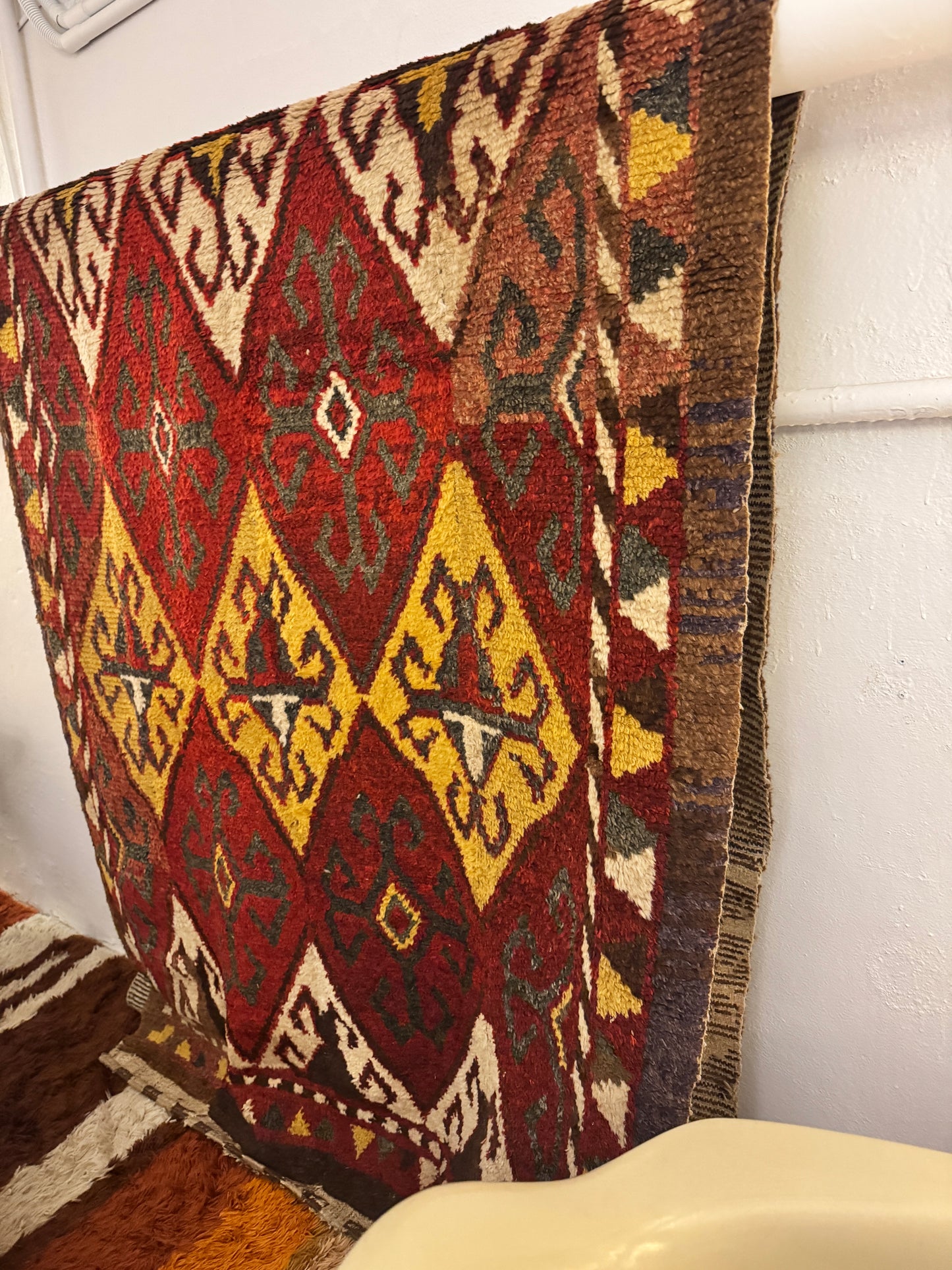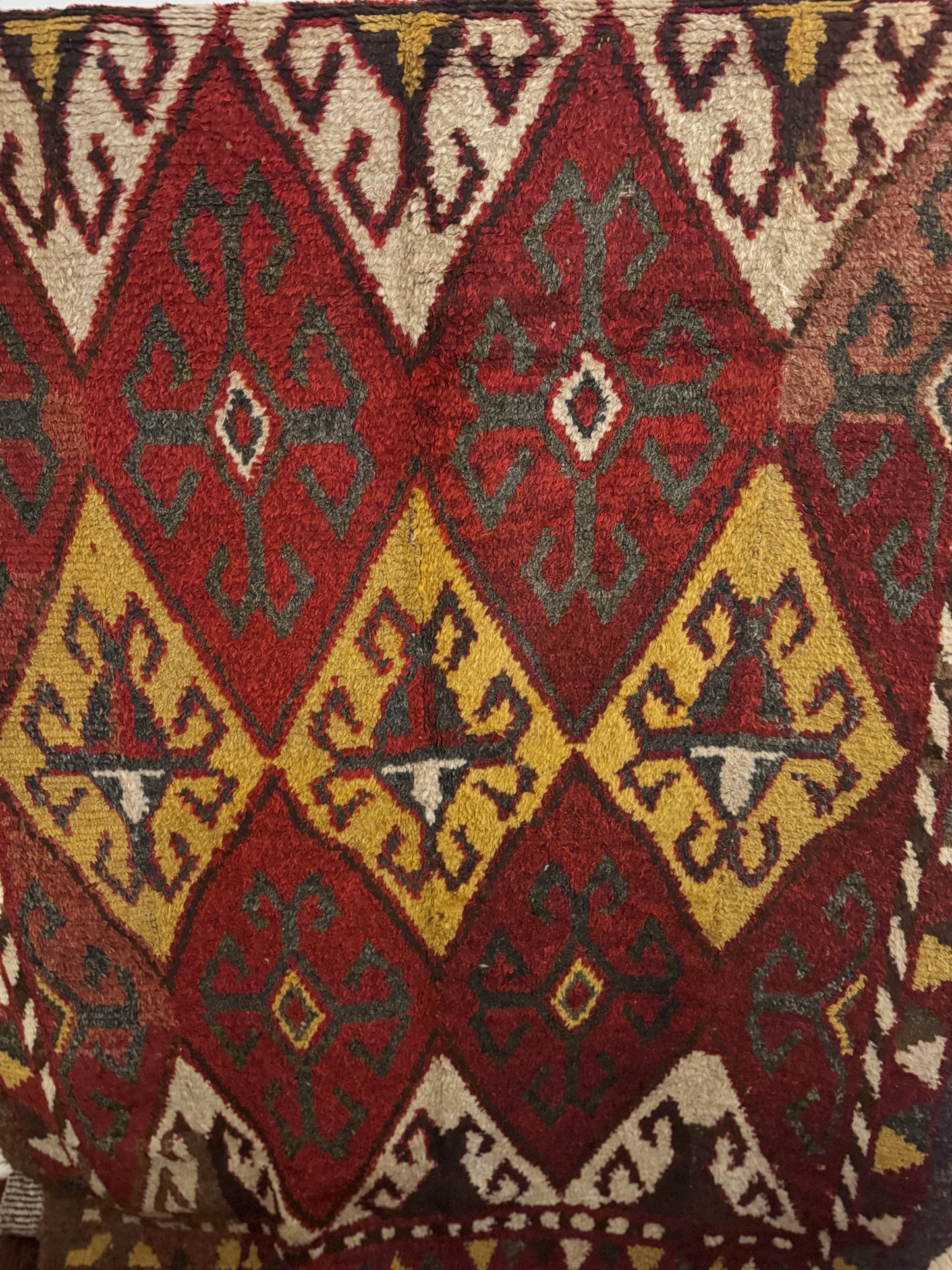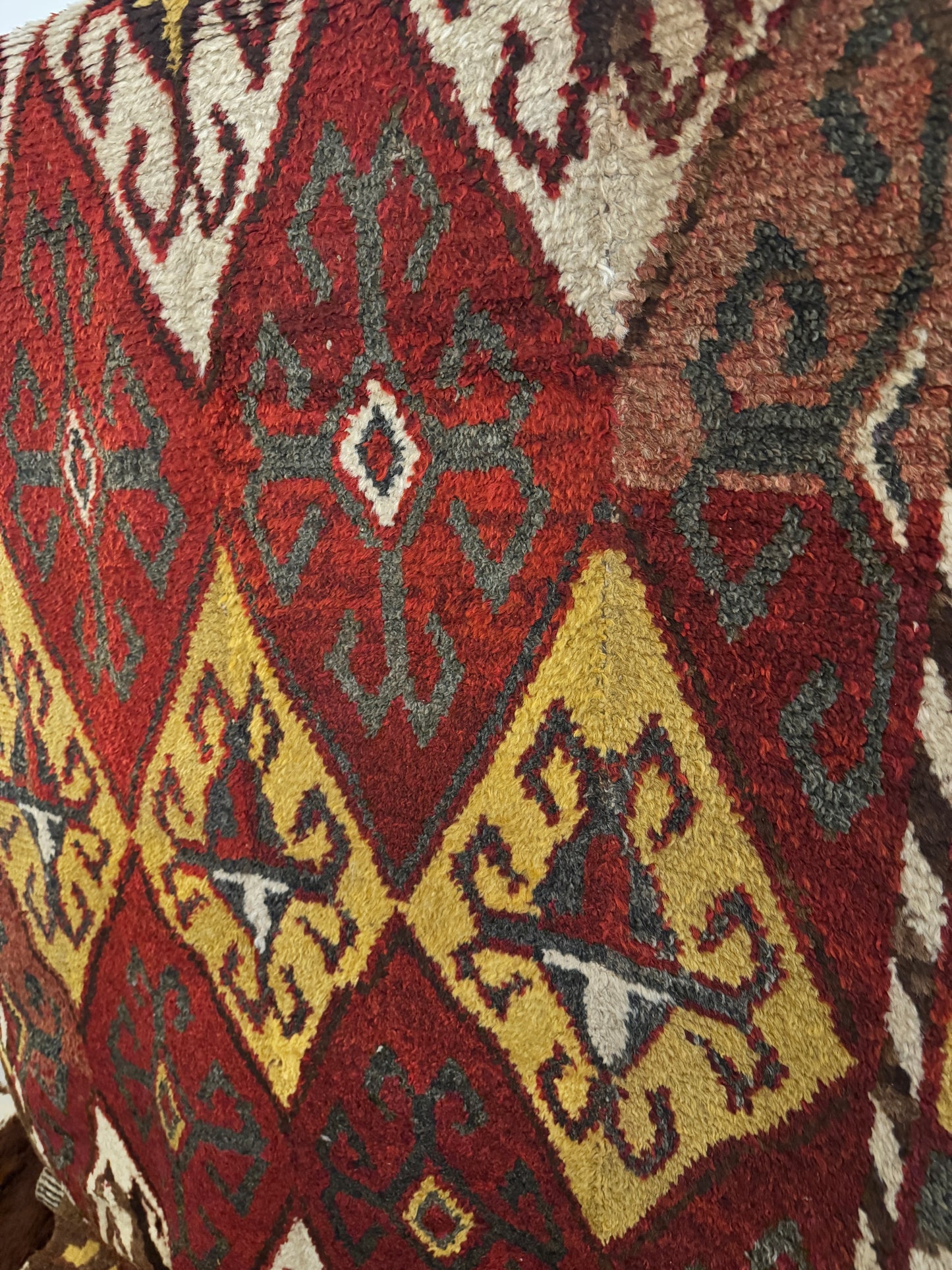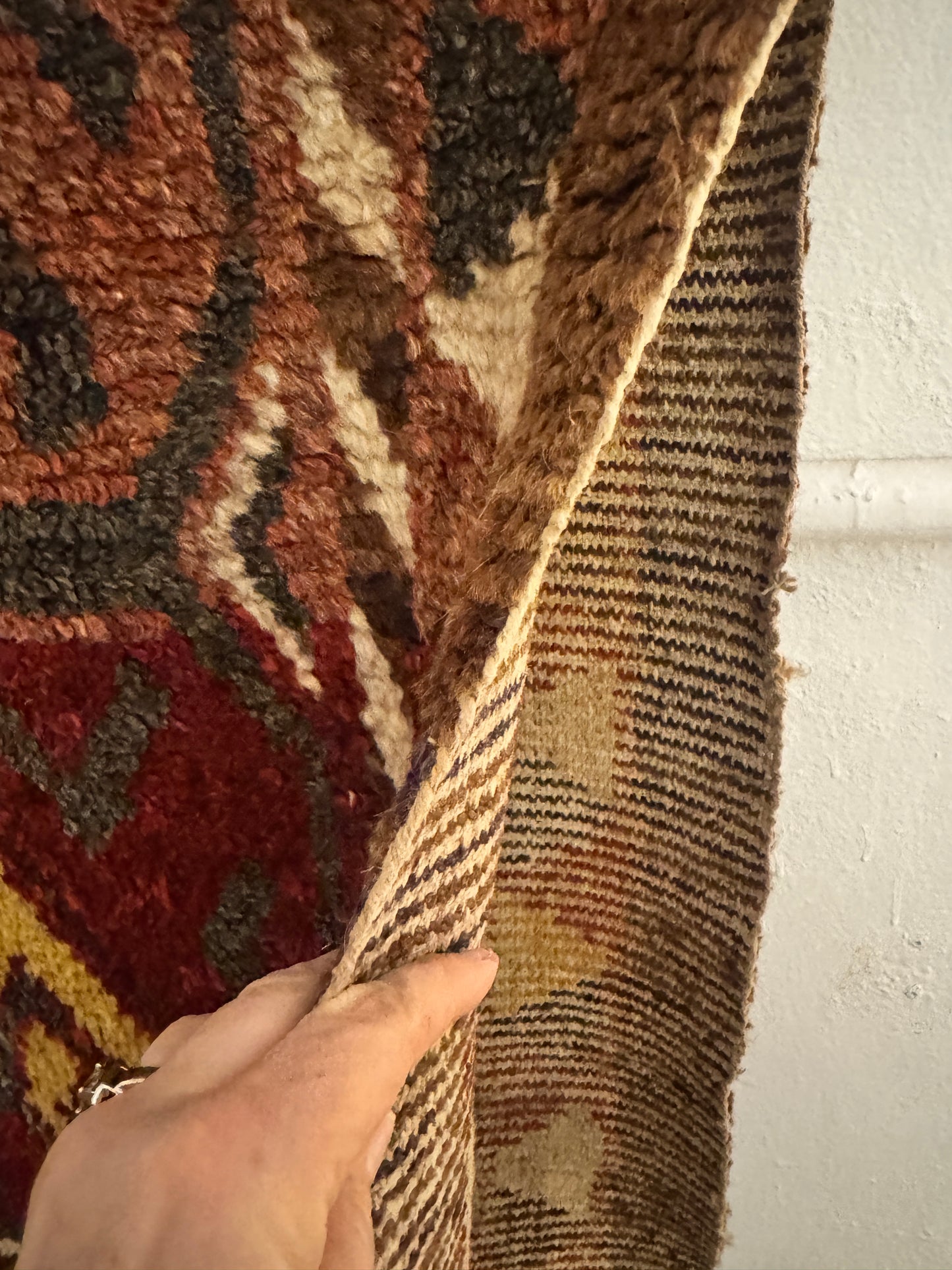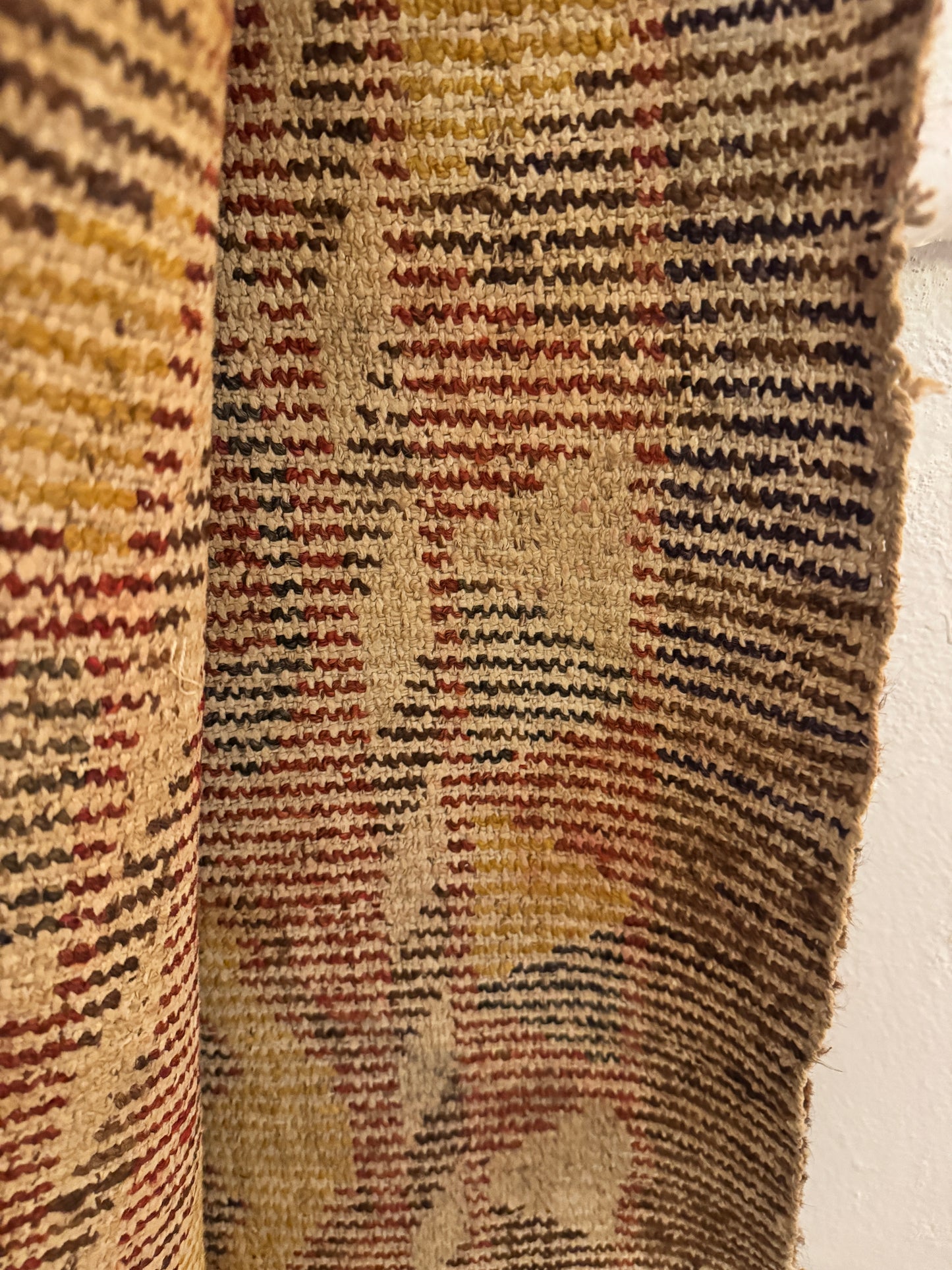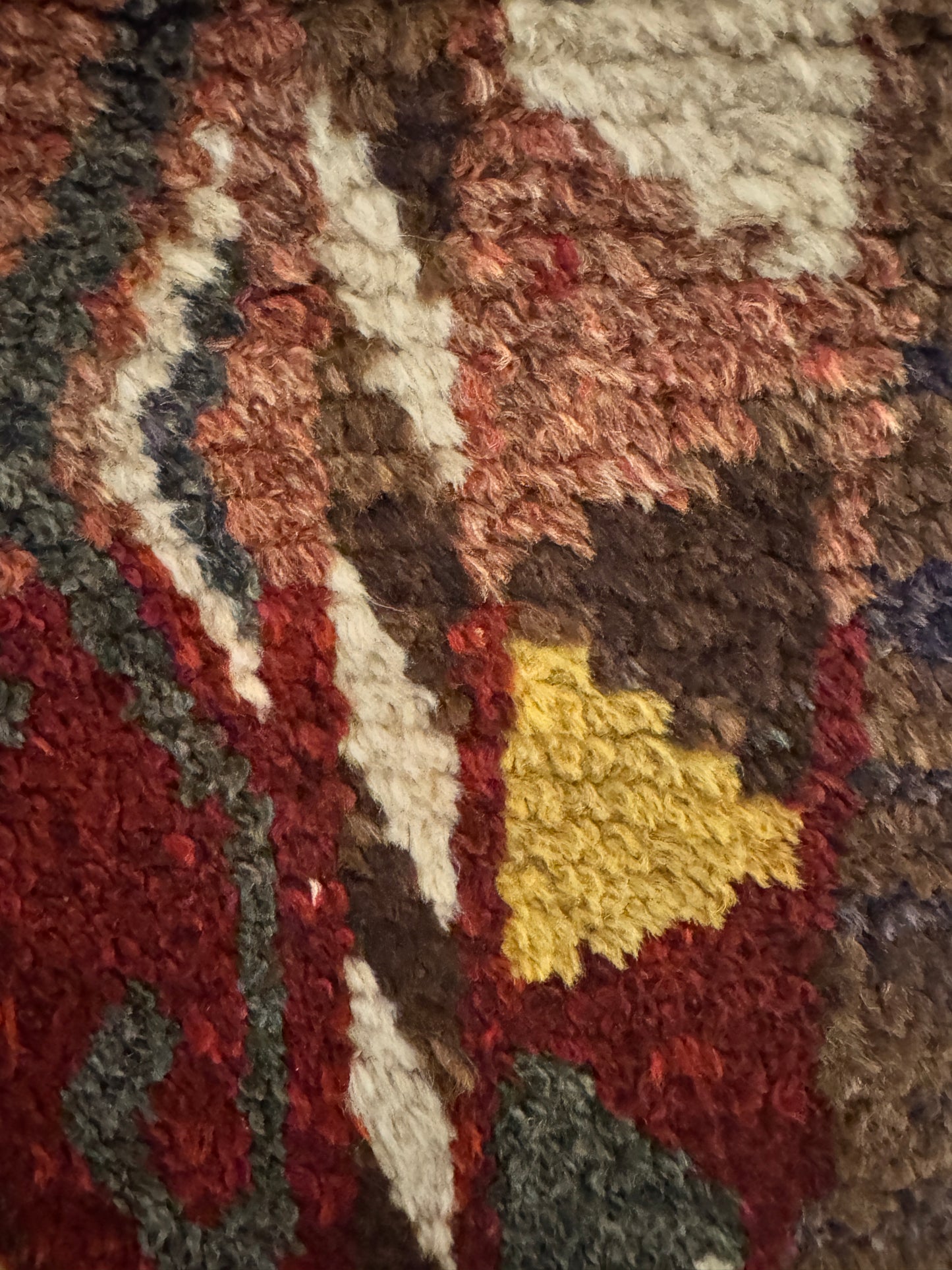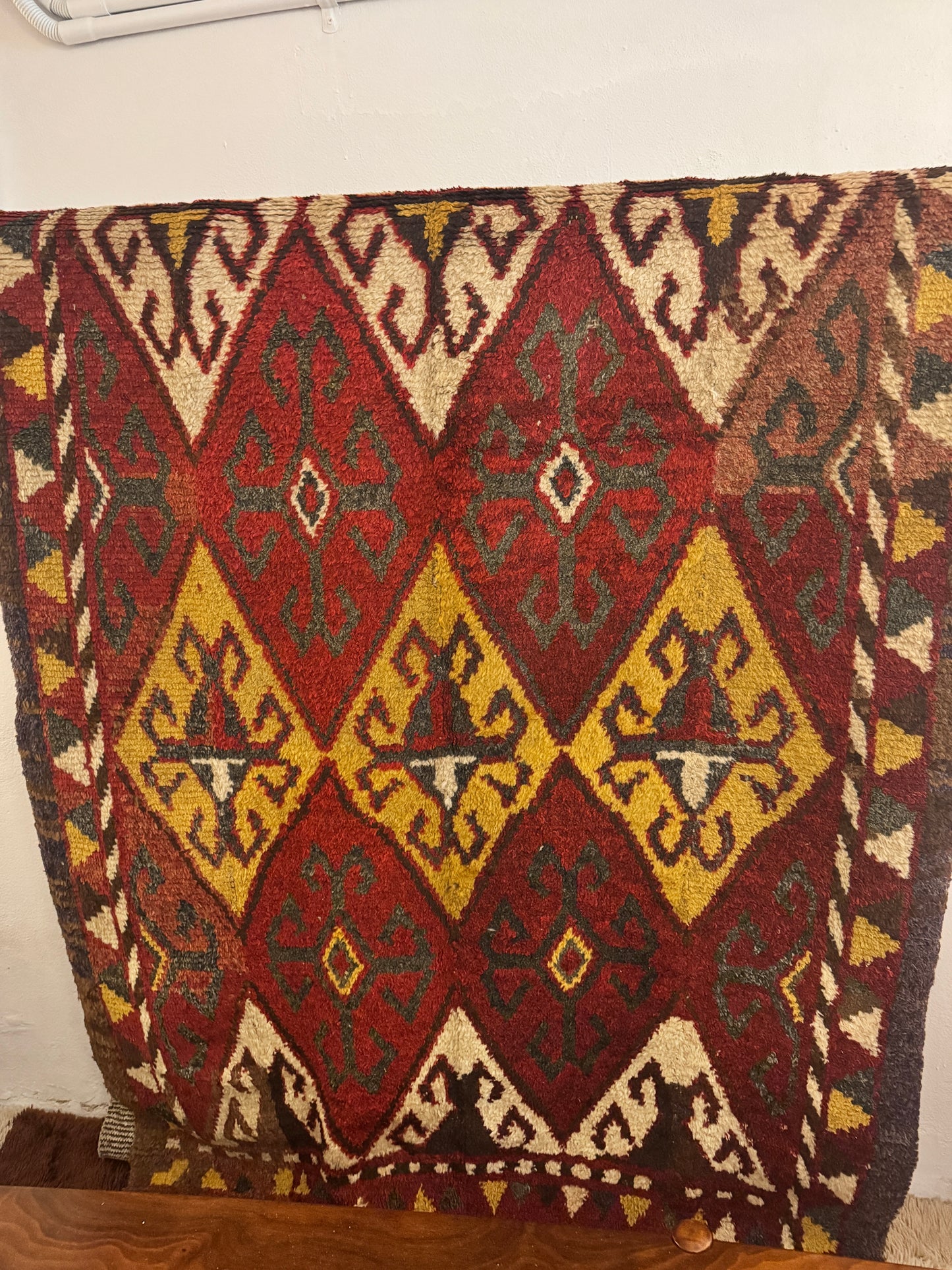Two girls and a container
Ersari Tribal Gallery Rug — Handwoven, Vegetable Dyed c. 1940
Ersari Tribal Gallery Rug — Handwoven, Vegetable Dyed c. 1940
Couldn't load pickup availability
Size: 1.3 × 3.2 metres
Condition: Excellent
Bold, geometric, and deeply rooted in tradition, this handwoven Ersari tribal rug comes from the Turkoman peoples of northern Afghanistan and southern Turkmenistan. Woven between the 1940s and 1960s, it embodies the strength and symbolism of Central Asian nomadic weaving.
The rug features a striking diamond lattice design, with each compartment filled by stylised motifs resembling rams’ horns — a powerful tribal emblem of strength, fertility, and protection. The saturated palette of madder red, golden yellow, ivory, and dark green is achieved through traditional vegetable dyes, producing colours that remain vibrant and warm decades later.
At 1.3 × 3.2 metres, this rug falls into the gallery format, designed to line the walls and floors of nomadic yurts. Its long, narrow proportions made it ideal for creating warmth and insulation, while also serving as a visual centrepiece within the home. These rugs often formed part of a bride’s dowry, treasured as heirlooms and passed from generation to generation.
The piece is in superb condition, with no damage or repairs — a rare survival of its type. Both durable and highly decorative, it makes an exceptional choice for collectors and interior designers alike.
Details
- Origin: Ersari Turkoman, Northern Afghanistan / Southern Turkmenistan
- Age: c. 1940–1960
- Materials: 100% hand-spun wool, natural vegetable dyes
- Technique: Hand-knotted pile
- Size: 1.3 × 3.2 metres
- Condition: Excellent
Share
